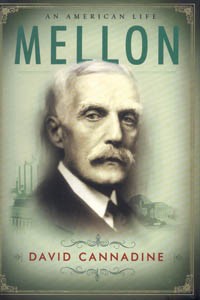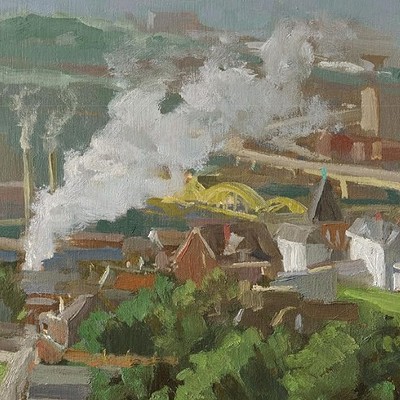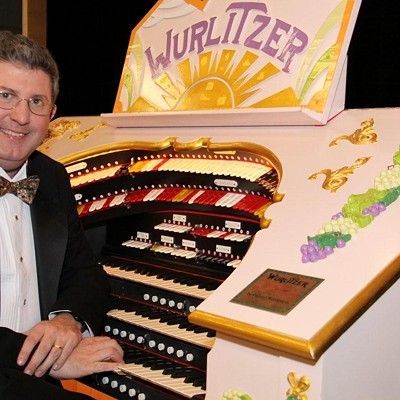By David Cannadine
Alfred A. Knopf, 621 pages, $35
Without Andrew Mellon, Pittsburgh as we know it wouldn't exist. At one time, his banks controlled nearly half of the region's deposits, and he financed corporations whose names, at least, still grace the city skyline: Gulf, Koppers, Alcoa.
Mellon was a key player on the national stage too: He served as treasury secretary for three presidents, and as whipping boy for a fourth, Franklin Delano Roosevelt. He established the National Gallery of Art, in Washington, D.C., with money from his pocket and paintings off his walls
Yet, as David Cannadine notes in the preface to his new biography, no one has written a full-length account of Mellon's life since he died, in 1937.
Why is this? One reason is that Mellon tried -- not always successfully -- to keep a low profile. As Cannadine notes, Mellon was "more concerned with perpetuating Mellon power than [with] flaunting the Mellon presence." Mellon "always distanced himself from the front line of business" ... not as "an abdication of control" but rather "as a discreet means of [exercising it] more effectively."
Another reason, perhaps, is that Andrew Mellon is one of the biggest pills in human history. His father, Thomas Mellon, was by all accounts -- including his own -- a ruthless businessman, a stern and unrelenting judge, and an anti-Catholic bigot. But he had at least a sulphrous charm. (When Thomas Mellon served on Pittsburgh's city council, Cannadine notes, his final vote was against a resolution giving right-of-way to funeral processions.) By contrast, Andrew was aloof and cold. Having never risen from poverty as his father did, he had little in common with those of lesser birth. In fact, except for his brother Richard, he could barely relate to his own family.
To take one anecdote from the many in this well-documented book: Toward the end of his life, Mellon was drawing up plans to donate his priceless art collection to the National Gallery. Yet when his son, Paul, asked for two minor paintings as a gift, Mellon demanded $50,000 in return. What makes this stinginess even harder to understand, Cannadine notes, is that Paul was a trust-fund baby: He'd be paying with money Andrew had given him.
It can't be easy writing about someone so reserved, but Cannadine makes a largely successful attempt. He does so, first, by clinging to Thomas Mellon for as long as he can: Each chapter begins with a quote from the elder Mellon's autobiography, such that the son's life is ever haunted by his father's words. Second, he focuses on the two times Mellon was thrust into the public spotlight.
The first was his failed marriage to his Nora McMullen. A worse match could hardly be imagined: Mellon was more than 20 years older than his bride, and he soon struck her as a Dickensian figure, consumed with money and incapable of warmth. The couple's divorce was literally the stuff of tabloids -- though Pittsburgh papers feared to tell the tale. Mellon installed listening devices in Nora's home, and wielded influence to rewrite the divorce laws in his favor. But as Cannadine skillfully documents, Nora was no innocent: She committed adultery and badly misled her husband, even as he supported her wastrel in-laws.
Exhibit B is Mellon's tenure as treasury secretary, during the 1920s. Mellon, Cannadine makes clear, routinely abused his position to advance family business interests. Still, when the Roosevelt administration begins a campaign of demogoguery against Mellon, Cannadine is sympathetic to a fault.
Mellon cut taxes on the wealthy, he notes, to increase economic activity: a classic supply-side argument. But while supply-siders today rail against "double taxation" on stock dividends, Mellon insisted on the "fairness of taxing more lightly income from wages ... than the incomes from ... investments."
It's dispiriting to think the most hated capitalist of the 1930s was more progressive than the Bush adminstration today. But Cannadine's apology doesn't mention Mellon's public endorsement of Mussolini ("a strong man with sound ideas and the force to make these ideas effective"). Nor does it address allegations that Mellon supported the American Liberty League, a dubious group with fascist sympathies. Such material might fall beneath Cannadine's generally high-minded approach ... except that Cannadine does speculate (unconvincingly) about whether Mellon once consorted with a prostitute.
More broadly, Cannadine's biography suffers from some the same flaws that bedevil its subject. Like Mellon, the book dwells heavily on dealmaking in business and art. (Your eyes may glaze at the accounts of Mellon's art purchases.) But also like Mellon, the book is sometimes indifferent to how his machinations affected others. What was it like to work in a Mellon-owned coal mine? Mellon probably barely knew -- he didn't suppress workers; he just financed those who did. And we are hardly told. The public's increasing disdain for Mellon, then, is as vexing to us as it must have been to him.
Still, we do see some of Mellon's soul, if only through its torments. Cannadine painstakingly assembles letters detailing Mellon's attempts to reconcile with his estranged wife and children. And the Mellon who emerges is a sympathetic -- or just plain pathetic -- character. Here we have a man who couldn't be cheated in a business deal, but who was cuckolded by his wife. He could donate artworks to an ungrateful nation, but could give almost nothing of himself to his son.
At 600 pages of tireless (and occasionally tiring) research, Cannadine makes a convincing case about the "great irony of Mellon's life": "[T]he very nature that had helped make him so rich, so powerful," he writes, was "pierced too late to redeem [his] vexed personal relationships."















